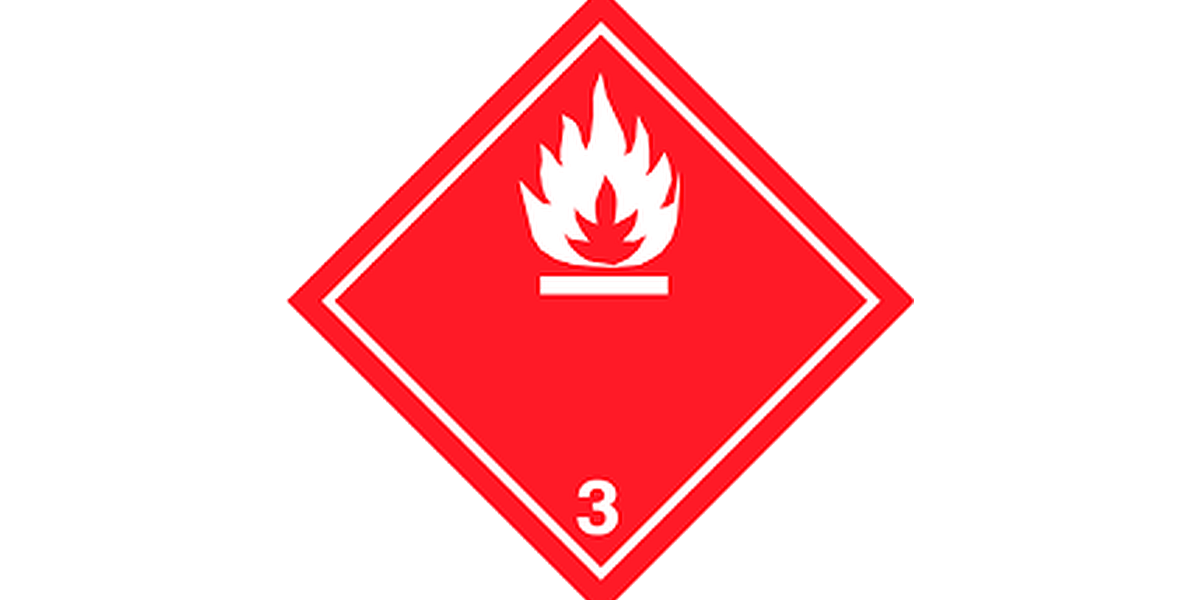There are 9 classes of Dangerous Goods within the UN regulations. Each substance or product within these classes can be a risk to health, safety or the environment. Take a read of our previous blogs on Class 1 and 2 here.
Class 3 goods are Flammable Liquids
The UN Dangerous Goods regulations define flammable liquids as liquids, mixtures of liquids or liquids containing solids in solution or suspension which have a flashpoint at temperatures of 60°C or below. A flashpoint for a particular liquid refers to the lowest temperature at which sufficient flammable vapours are released to burn in the air.
Class 3 liquids are one of the most commonly shipped dangerous goods. They are regulated because of their potential to pose a serious danger due to their volatility, combustibility and potential in causing fire hazards.
Some commonly transported Class 3 Dangerous Goods include nail polish, acetone, kerosene, adhesives and turpentine.
Flammable liquids, although not having a sub-division of Dangerous Goods classes, have different packing groups:
| Packing Group | Initial Boiling Point | Flashpoint (closed cup) |
| I | Boiling Point Below 35° | |
| II | Boiling Point Above 35° | Flashpoint Below 23° |
| III | Boiling Point Above 35° | Greater than or equal to 23°C but less than or equal to 60°C |
The Material Safety Data Sheet (MSDS) of that specific product will guide you to determine the packing group of a flammable liquid.
Flammable Liquid Symbol
Class 3 Goods need to carry the correct label when being transported. The labels are very easy to make out as they are a flame symbol, coloured either black or white and have the number 3 below them.

Our range of Full Dangerous Goods training covers all 9 classes of DG for Road, Sea and Air.
To book a course or if you would like to talk about your training requirements call 0330 912 5041 or email [email protected]

